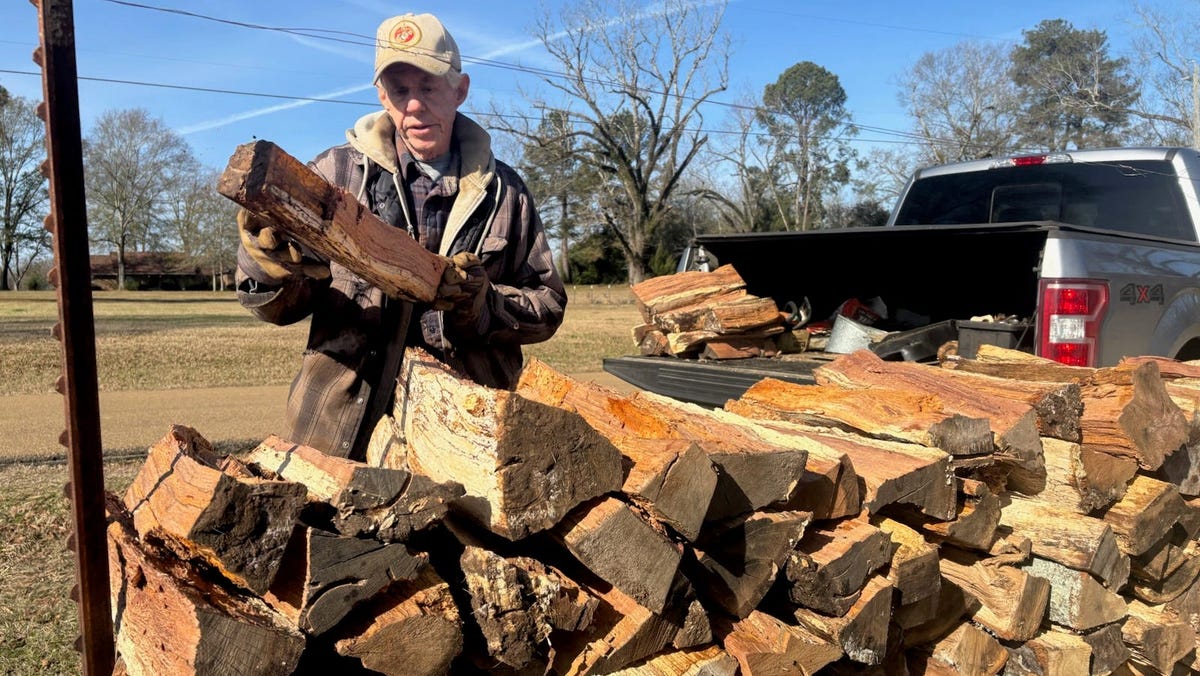Health
New Alzheimer’s blood test may determine who is at risk of dementia: ‘Could be game changer’
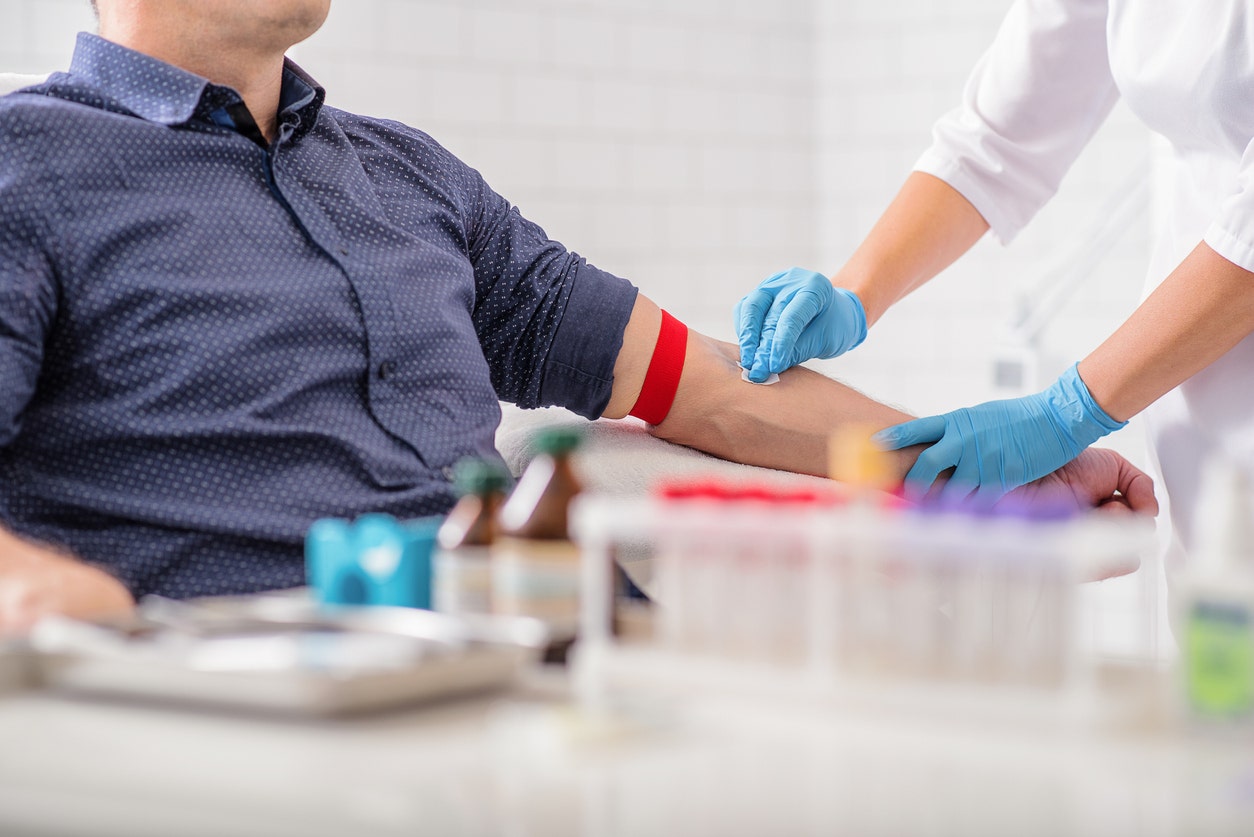
A blood test may help identify individuals at risk for Alzheimer’s before they show any signs of the disease, according to a new study published in the journal Nature Medicine.
The blood test looks at the activity of star-shaped brain cells in the blood called astrocytes, according to researchers from the University of Pittsburgh School of Medicine.
Only patients whose brains showed a combination of “abnormally reactive” astrocytes and high accumulations of amyloid — one of the proteins that is linked to Alzheimer’s — went on to develop cognitive symptoms of the disease, per the study findings.
ROSALYNN CARTER DIAGNOSED WITH DEMENTIA AT 95: WHAT TO KNOW ABOUT THE CONDITION IN THE ‘OLDEST OLD’
“This puts astrocytes at the center as key regulators of disease progression, challenging the notion that amyloid is enough to trigger Alzheimer’s disease,” senior author Tharick Pascoal, M.D., PhD, an associate professor of psychiatry and neurology at the University of Pittsburgh School of Medicine, said in a news release.
A blood test may help identify individuals at risk for Alzheimer’s before they show any signs of the disease, according to a new study published in the journal Nature Medicine. (iStock)
Astrocytes are specialized cells in the brain that supply nerve cells with nutrients and serve other protective functions, according to Verywell Health.
Signs of Alzheimer’s in the brain
Alzheimer’s is a degenerative condition that affects the brain, resulting in a progressive loss of memory and the onset of dementia.
Brain scientists believed for decades that one telltale sign of the disease — and a possible direct culprit — was an accumulation of amyloid plaques and concentrations of protein fibers called “tau tangles,” according to the University of Pittsburgh’s press release.
IOWA WOMAN, 27, HAS 99% CHANCE OF DEVELOPING DEMENTIA: ‘I NEEDED TO KNOW’
Researchers have been puzzled, however, by a significant share of individuals whose brains appear to be “chock-full of toxic amyloid aggregates” yet never go on to develop Alzheimer’s-associated dementias.
The new findings may help solve this mystery, the study authors noted in the release.
The role of inflammation in Alzheimer’s disease has been the focus of many ongoing clinical trials.
“Our study argues that testing for the presence of brain amyloid along with blood biomarkers of astrocyte reactivity is the optimal screening to identify patients who are most at risk for progressing to Alzheimer’s disease,” Pascoal said in the release.
Blood test results could be a ‘game changer’
During the study, researchers tested the blood of more than 1,000 cognitively unimpaired elderly people with and without signs of amyloid in the brain.
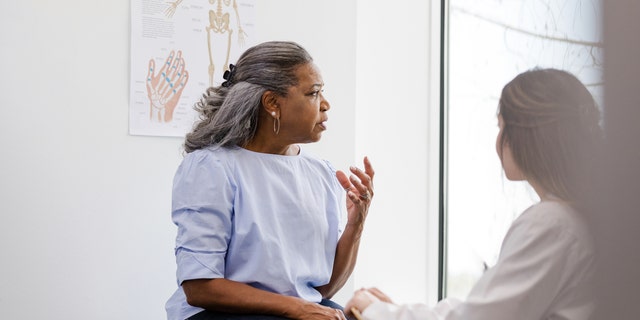
More than six million people in the U.S. have Alzheimer’s, 73% of whom are 75 or older, according to the Alzheimer’s Association. (iStock)
The study showed that only those who were positive for both amyloid protein accumulations and increased astrocyte reactivity showed evidence of progressively developing tau pathology, which experts said might predispose a person to develop clinical symptoms of Alzheimer’s disease.
“Astrocytes coordinate [the] brain amyloid and tau relationship like a conductor directing the orchestra,” Bruna Bellaver, PhD, lead author of the study and a postdoctoral associate at the University of Pittsburgh, said in the release.
“This can be a game changer [in] the field, since glial biomarkers in general are not considered in any main disease model,” Bellaver added.
AI TOOL GIVES DOCTORS PERSONALIZED ALZHEIMER’S TREATMENT PLANS FOR DEMENTIA PATIENTS
Nearly two years ago, Pascoal and his team of researchers found that inflammation of brain tissue triggered the spread of “pathologically misfolded proteins in the brain and is a direct cause of eventual cognitive impairment in patients with Alzheimer’s disease,” according to the release.
The role of inflammation in Alzheimer’s disease has been the focus of many ongoing clinical trials, Dr. Marc L. Gordon, chief of neurology at Zucker Hillside Hospital in Manhasset, New York, told Fox News Digital in an interview.
Gordon was not part of the study but has conducted research on Alzheimer’s disease.
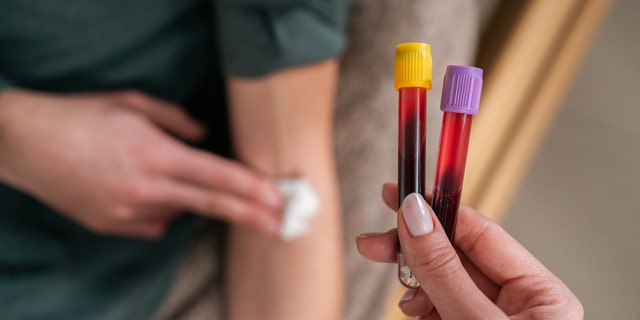
Researchers tested the blood of more than 1,000 cognitively unimpaired elderly people with and without signs of amyloid in the brain. (iStock)
“It’s not just amyloid and tau, but neuro-inflammation” that potentially play an important role in the cognitive decline associated with Alzheimer’s disease, he said.
This new study “is another piece of the puzzle,” Gordon said, as it helps identify individuals who are not yet experiencing symptoms of the disease but could possibly benefit from treatments to halt its progression.
CLICK HERE TO SIGN UP FOR OUR HEALTH NEWSLETTER
“The notion here is that if you could identify a subset of the people who are cognitively normal but have amyloid present … on the basis of this biomarker for inflammation, those would be the people who you may want to test a new drug on,” he added.
With clinical trials starting to include people at earlier stages of pre-symptomatic disease, accurate early diagnosis of Alzheimer’s risk is critical for success, brain experts shared with Fox News Digital.
Including astrocyte reactivity markers in the panel of diagnostic tests could help identify candidates at risk for Alzheimer’s disease for future research studies, the University of Pittsburgh researchers stated in the release.
More than six million people in the U.S. have Alzheimer’s, 73% of whom are 75 or older, according to the Alzheimer’s Association.

Health
Water for Weight Loss? How Much You Should Drink to Shed More Weight

Sign Up
Create a free account to access exclusive content, play games, solve puzzles, test your pop-culture knowledge and receive special offers.
Already have an account? Login
Use left and right arrow keys to navigate between menu items.
Use escape to exit the menu.
Health
Ivanka Trump stays fit with this self-defense practice: ‘Moving meditation’

Ivanka Trump, the daughter of incoming President Donald Trump, has been known to lead an active life.
As the mother of three kids and a lover of outdoor sports, the 43-year-old is always on the move, recently adding jiu-jitsu to her mix of physical activity.
In a recent appearance on The Skinny Confidential Him & Her podcast, Trump shared how her daughter, Arabella, expressed interest in learning self-defense when she was 11.
IVANKA TRUMP SHARES THE FITNESS ROUTINE THAT HAS ‘TRANSFORMED’ HER BODY: ‘SAFE AND STEADY’
“I’m just so in awe of [her],” Trump said about her daughter. “She came to me and said, ‘As a woman, I feel like I need to know how to defend myself, and I don’t have a confidence level yet that I can do that.’”
Ivanka Trump plays with her daughter, Arabella Rose Kushner, in the Rose Garden during a Congressional Picnic on the South Lawn of the White House in June 2017. (Alex Wong/Getty Images)
Trump responded, “At 11 … I was not thinking about how to physically defend myself, and I thought it was the coolest thing.”
After researching self-defense options, Trump enrolled Arabella, now 13, in jiu-jitsu (martial arts) classes with the Valente Brothers in Miami, Florida – and soon the whole family joined in.
STAY SAFE WITH 4 SELF-DEFENSE TIPS FROM EXPERT RENER GRACIE: ‘NOT AN EASY TARGET’
“[Arabella] started asking me to join – I joined,” she said. “Then my two sons wanted to do what their older sister was doing. Then my husband joined … It is good for everyone.”
“It’s almost like a moving meditation.”
Trump, who is now a blue belt in jiu-jitsu, described that she likes how the sport “meshes physical movement.”
“It’s almost like a moving meditation because the movements are so micro,” she said. “It’s like three-dimensional chess.”
“There’s like a real spiritualism to it … The grounding in sort of samurai tradition and culture and wisdom.”
During President Trump’s first term in the White House, Ivanka Trump noted that she had very little focus on fitness, only taking weekly runs with husband Jared Kushner and “chasing the kids around the house.”
WHAT IS RUCKING? THIS POPULAR FITNESS TREND GOES BACK TO BASICS FOR BIG GAINS
Trump shared that she was “never a gym person,” but always loved sports, which still holds true today.
She said she enjoys skiing, surfing and racquet sports like padel tennis (a hybrid of tennis and squash) and pickle ball, which she described as “fun and social.”

Ivanka Trump and Jared Kushner are seen out for a walk with their children on Dec. 10, 2022, in Miami, Florida. (MEGA/GC Images)
‘Elevating awareness’
On the podcast, Trump said she was drawn to jiu-jitsu because it combines physical fitness and philosophy.
It also focuses more on how to extract yourself from a dangerous situation before having to harm someone who’s a threat, she noted.
MARTHA STEWART, 83, STAYS FIT AND FLEXIBLE WITH THIS ROUTINE
“Having these skills makes you less likely to get into a fight, not more likely to,” Trump went on.
“Once you have the confidence that you can sort of move out of a situation, there’s a real focus on elevating awareness.”

Ivanka Trump waves as she arrives at Joint Base Andrews in Maryland for US President Donald Trump’s departure on Jan. 20, 2021. (ALEX EDELMAN/AFP via Getty Images)
In a previous interview with Fox News Digital, Rener Gracie, head instructor of jiu-jitsu at Gracie University in California, stressed that the only truly reliable skills are those that have been “mastered into muscle memory.”
This occurs through extensively practicing self-defense methods like Brazilian jiu-jitsu, which are “leverage-based and don’t rely on you having a physical advantage over the subject,” he noted.
“Having these skills makes you less likely to get into a fight, not more likely to.”
“And by that, I mean strength, speed, power and size — because in almost every case, the attacker is going to target someone who they feel is physically inferior to them.”
KATE MIDDLETON EATS THIS HEART-HEALTHY ‘SUPERFOOD’ FOR BREAKFAST EACH DAY
Gracie, whose family created Brazilian jiu-jitsu and the UFC (Ultimate Fighting Championship), shared that jiu-jitsu is “highly sought after” because it only takes weeks or months for someone to “develop the core skills that could keep them safe in a violent physical encounter.”
‘Transformative’ strength training
In addition to mastering self-defense skills, Ivanka Trump recently revealed a shift in her fitness routine to include weightlifting and resistance training.
On Instagram, Trump posted a video displaying different exercises with various equipment in the gym, noting in the caption that she used to focus primarily on cardio, yoga and Pilates.
“Since moving to Miami, I have shifted my focus to weightlifting and resistance training, and it has been transformative in helping me build muscle and shift my body composition in ways I hadn’t imagined,” she wrote.
“I believe in a strength training approach built on foundational, time-tested and simple movements – squats, deadlifts, hinges, pushes and pulls. These are the cornerstones of my workout, emphasizing functional strength for life.”
For more Health articles, visit www.foxnews.com/health
Trump added that prioritizing form is “essential” to ensure results before adding on weight.
“This ensures a safe and steady progression while maintaining the integrity of each movement,” she continued. “I incorporate mobility work within my sessions to enhance range of motion.”
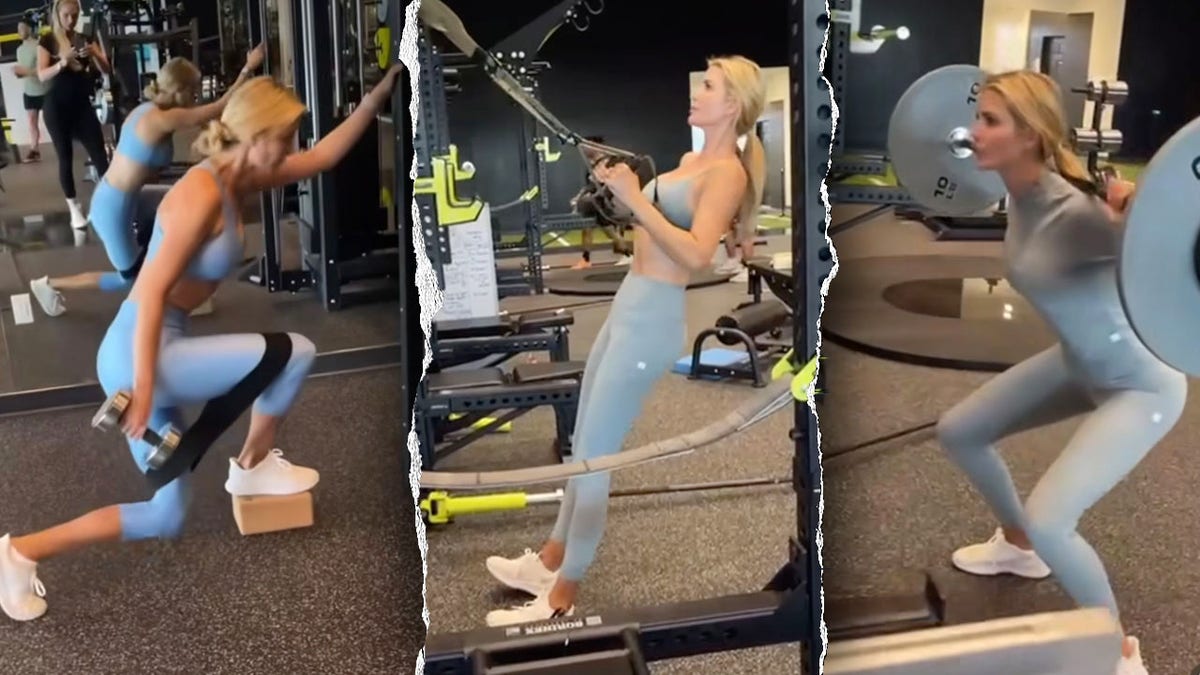
“I believe in a strength training approach built on foundational, time-tested and simple movements – squats, deadlifts, hinges, pushes and pulls,” Ivanka Trump wrote in an October Instagram post. (Ivanka Trump/Instagram)
“Weightlifting has enhanced not just my strength but my overall athleticism and resilience,” she added.
Trump said she dedicates three to four days a week to strength training, including two solo sessions and two with a personal trainer.
CLICK HERE TO SIGN UP FOR OUR HEALTH NEWSLETTER
She also said that increasing her protein intake has also been “critical” to her progress.
“I now consume between 30 and 50 grams of protein a meal,” she said. “It works … I’ve never been stronger!”

Jared Kushner and Ivanka Trump are seen arriving at the beachside eatery on May 2, 2024, in Miami Beach, Florida. (MEGA/GC Images)
Trump also still enjoys weekly yoga sessions, spending time outdoors with her children and playing sports with friends, she said.
“I also incorporate a couple of short (10-minute), high-intensity interval training sessions (such as sprints) each week to keep my cardiovascular fitness sharp and dynamic,” she noted.
“This balanced approach has infused new energy into my fitness routine and yielded great results.”
Fox News Digital reached out to Ivanka Trump for comment.
Health
Semaglutide Pills and Injections Vs. Drops: Experts Weigh In | Woman's World

Sign Up
Create a free account to access exclusive content, play games, solve puzzles, test your pop-culture knowledge and receive special offers.
Already have an account? Login
Use left and right arrow keys to navigate between menu items.
Use escape to exit the menu.
-
/cdn.vox-cdn.com/uploads/chorus_asset/file/25822586/STK169_ZUCKERBERG_MAGA_STKS491_CVIRGINIA_A.jpg)
/cdn.vox-cdn.com/uploads/chorus_asset/file/25822586/STK169_ZUCKERBERG_MAGA_STKS491_CVIRGINIA_A.jpg) Technology1 week ago
Technology1 week agoMeta is highlighting a splintering global approach to online speech
-

 Science1 week ago
Science1 week agoMetro will offer free rides in L.A. through Sunday due to fires
-
/cdn.vox-cdn.com/uploads/chorus_asset/file/23935558/acastro_STK103__01.jpg)
/cdn.vox-cdn.com/uploads/chorus_asset/file/23935558/acastro_STK103__01.jpg) Technology1 week ago
Technology1 week agoAmazon Prime will shut down its clothing try-on program
-

 News1 week ago
News1 week agoMapping the Damage From the Palisades Fire
-
/cdn.vox-cdn.com/uploads/chorus_asset/file/25826211/lorealcellbioprint.jpg)
/cdn.vox-cdn.com/uploads/chorus_asset/file/25826211/lorealcellbioprint.jpg) Technology7 days ago
Technology7 days agoL’Oréal’s new skincare gadget told me I should try retinol
-
/cdn.vox-cdn.com/uploads/chorus_asset/file/25832751/2192581677.jpg)
/cdn.vox-cdn.com/uploads/chorus_asset/file/25832751/2192581677.jpg) Technology4 days ago
Technology4 days agoSuper Bowl LIX will stream for free on Tubi
-

 Business5 days ago
Business5 days agoWhy TikTok Users Are Downloading ‘Red Note,’ the Chinese App
-
/cdn.vox-cdn.com/uploads/chorus_asset/file/25835602/Switch_DonkeyKongCountryReturnsHD_scrn_19.png)
/cdn.vox-cdn.com/uploads/chorus_asset/file/25835602/Switch_DonkeyKongCountryReturnsHD_scrn_19.png) Technology2 days ago
Technology2 days agoNintendo omits original Donkey Kong Country Returns team from the remaster’s credits



/cdn.vox-cdn.com/uploads/chorus_asset/file/25345068/STK468_APPLE_ANTITRUST_CVIRGINIA_C.jpg)








